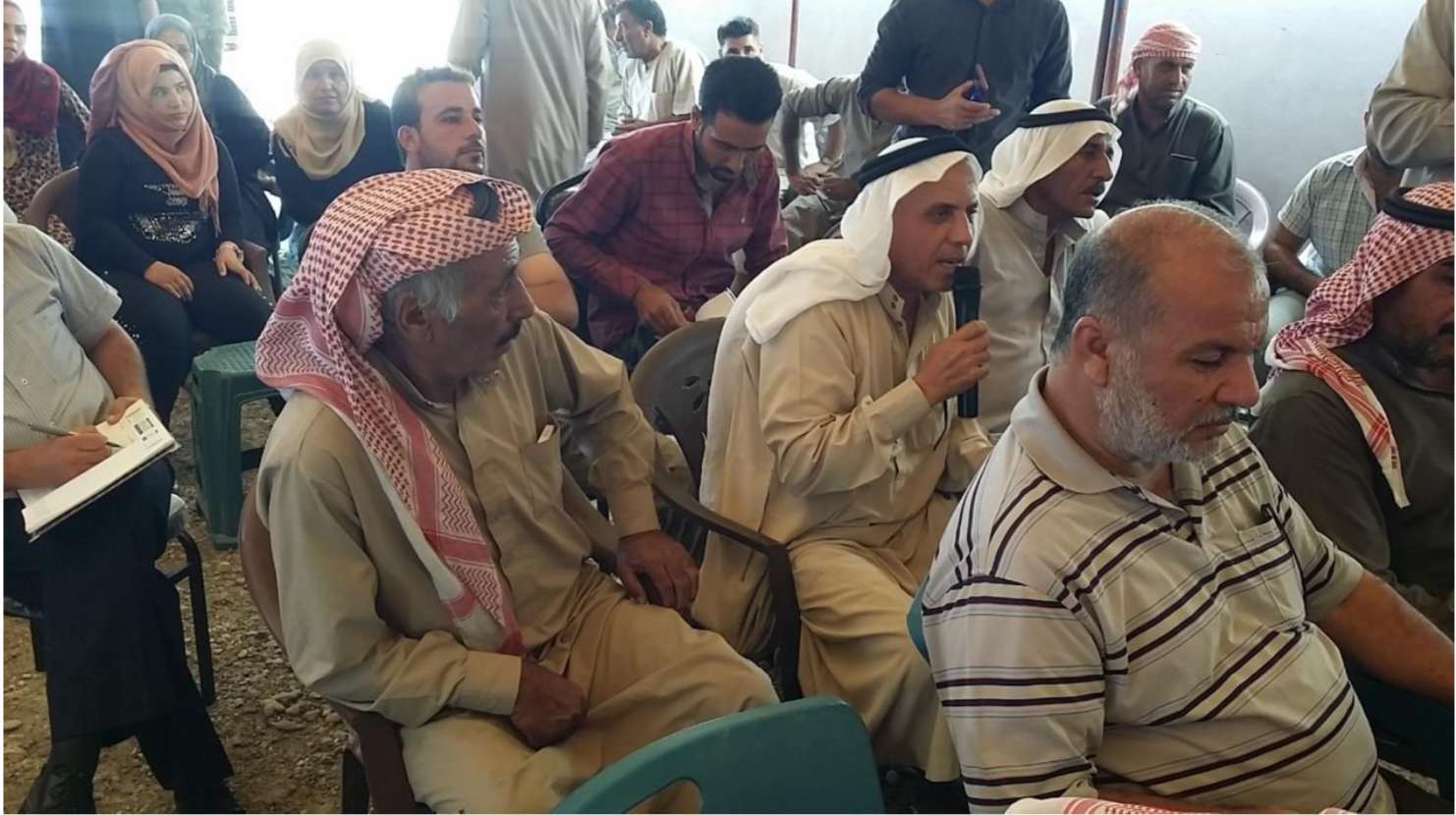
As development practitioners, we routinely search outside a particular country context for successful models of change to adapt in new locations. The effort to constantly learn from past experience, transfer knowledge, and refine strategies to meet program objectives is a keystone of DT Global’s community of practice.
Opportunities for cross-program learning are especially relevant in regions that share geography and common sources of instability. In Syria and Iraq, for example, DT Global implements programs that increase the capacity of local government and civil society to provide essential services and manage communal tensions following years of war and oppression by extremist groups. These parallels create opportunities for country teams to share best practices and, in certain cases, directly support each other’s activities.
Staff from one of DT Global’s Syria-focused programs recently leveraged this potential. They invited their colleague, Iraq Project Director Humam Rajab, to consult on the development and implementation of a new activity model in Syria using lessons learned from our Preventing Reprisals and Mitigating Violence (PRMV) in Iraq program. PRMV, implemented for Global Affairs Canada, initiated a grassroots anti-retribution movement in Anbar and Nineveh provinces to help protect vulnerable populations. A key element of work focused on establishing and facilitating crisis committees for community members to safely discuss disputes in a public dialogue format and, as a result, prevent retributive violence.
In Syria, DT Global is working with a local civil society organization (CSO) to conduct a series of public dialogues in areas recently liberated from ISIS. The dialogues will identify local development priorities and increase participation in the design of quick impact projects to address community needs. Mr. Rajab consulted with our Syria program staff on the activity design and conducted a two-day training for the CSO partner staff to share best practices from Iraq on how to organize and facilitate public dialogues in fragile contexts. The training allowed the partner to directly benefit from years of experience acquired from peer organizations addressing similar challenges in Iraq.
· Generate stakeholder buy-in through effective facilitation: To get stakeholder buy-in, public dialogues need to be facilitated correctly. Mr. Rajab covered the basics of facilitation skills, including how to navigate between contrasting views, synthesize findings, and foster commitment among diverse stakeholders to collectively address local issues. He also reviewed how to develop appropriate discussion topics and record group discussion given local sensitivities. To solidify learning, participants engaged in role play to practice different audience compositions and scenarios they may encounter.
· Create the right group composition: Effective public dialogues need to include a full range of community members. Our crisis committees in Iraq included a range of viewpoints from actors—academics, tribal leaders, public officials, security sector officials—with legitimacy in their communities. We also kept geographic, gender, ethnic, and sectarian balance in mind to maintain inclusivity.
· Implement effective follow-up: Post-public dialogue, follow-up actions are essential to ensure the program meets community expectations. Mr. Rajab discussed how previous experience in Iraq and elsewhere has demonstrated that consulting community members invariably leads to increased expectations that, if left unaddressed, can hinder trust and further participation in the recovery process. As part of the training, our CSO partner was able to develop a rigorous action plan to ensure information provided by participants in the dialogues will be used to bolster advocacy efforts and inform the design of community stabilization projects.
The training provided a unique opportunity for the local partner to learn from a program outside of Syria and gain specialized skills in public outreach. The local partner took full advantage of the opportunity by actively engaging throughout the training, later commenting on the usefulness of the sessions for grounding their approach.
The success of the training demonstrated the immense potential for knowledge exchange between these programs, an effort they will carry forward in conjunction with DT Global’s Learning and Innovation Division. The division provides resources to support internal dialogue, document best practices, and facilitate the exchange of technical expertise among programs. It is a key part of our firm’s efforts to empower teams with the tools and processes that enable us to invest in emerging practices, innovate programming, and provide industry-leading development solutions.